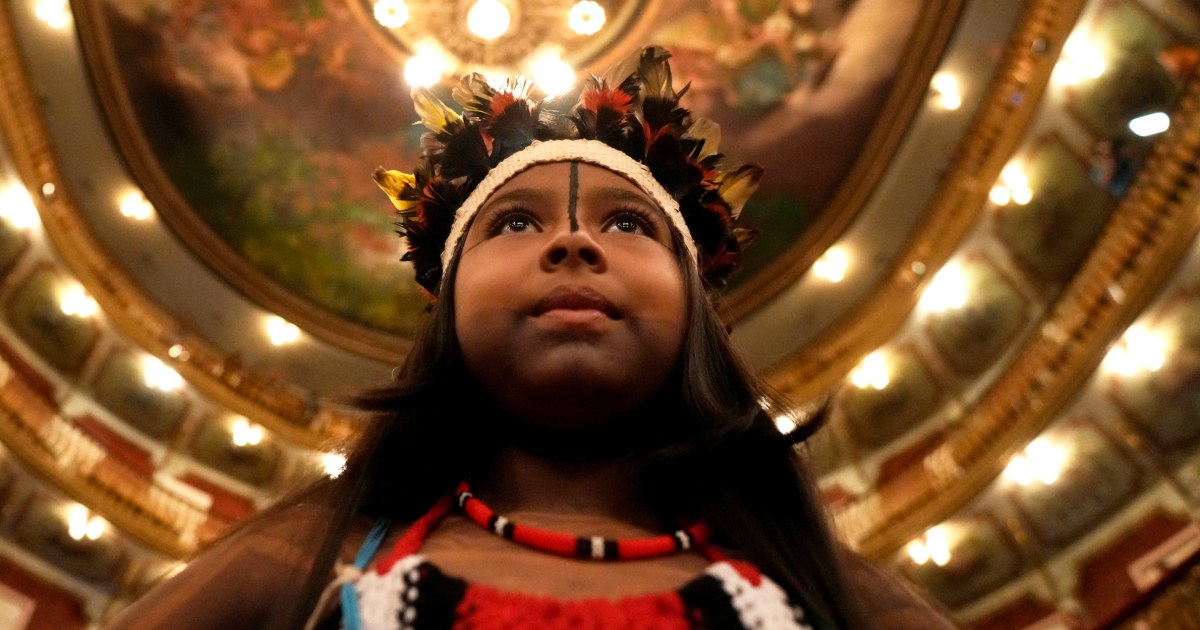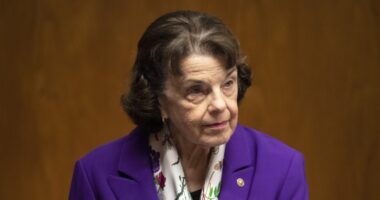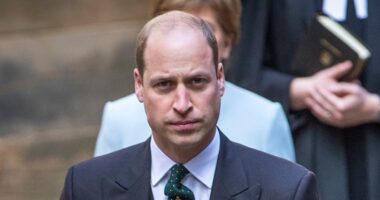
Over 1,200 of them were camping in a private recreational park on Belem’s outskirts, with tents arranged in rows beside the stone trail gently winding through the jungle past waterslides coursing into man-made pools. Early Monday, they were rising to eat breakfast and prepare for the events of the day ahead.
Some smiled at the sight of Chief Raoni Metuktire, a leader from the Amazon known throughout the world for defending the environment, sitting on a flimsy chair beside the trail and smoking a pipe. He shook hands and exchanged pleasantries with well-wishers.
Diolina Krikati had traveled with about 40 others from her native Maranhao state. In an interview, she stressed the importance of the Amazon for generating the rains that irrigates crops in fields far from the forest — ensuring a livelihood not just for Indigenous people, but many non-Indigenous Brazilians, too.
“(The summit) is like taking a moment to hear Indigenous people, and we need to be listened to. It’s a moment we need to speak about our needs, and our difficulties,” said Krikati, 31.
Another attendee was Naldinho Kumaruara, 29, a spiritual leader wearing a crown of blue macaw feathers and a necklace made of snake bones, and who held a giant maraca in his hand.
Kumaruara had come from his Indigenous territory — threatened by illegal logging and fishing, and predatory tourism — to Belem, the state capital. Already he had spoken with members of Para state’s secretariats of education and health who visited the park, as well also officials of President Luiz Inácio Lula da Silva’s general secretariat at the convention center.
He sees this gathering, bringing together all nations that are stakeholders in the Amazon, as a step forward, and also one that has better likelihood to advance Indigenous causes than others, like the Free Land Camp in the capital Brasilia.
“Now it is different, because we can speak for ourselves; It isn’t a white person coming and speaking for us. We are always involved, but we didn’t have a position to speak,” he said. “Today, we can speak.”
Later that afternoon, Naldinho was among those in the crowd of Belem’s colonial theater. From an upper balcony, he watched as a group of adolescent Indigenous people stomped and sang on the stage.
The interim president of Brazil’s statistics institute Cimar Azeredo announced the revised population statistic to the crowd, saying it had “helped to rediscover Brazil.”
Their larger numbers means a greater share of the government resources can be earmarked for investment in Indigenous people’s health and education, Planning and Budget Minister Simone Tebet said at the event.
And Guajajara stressed that it also means more money for security — a need she said was underscored just hours earlier, when three people of the Tembe ethnicity were shot.
And in coming months, she told the crowd, the federal government will expel invaders from 32 Indigenous territories; her announcement was met by cheers and applause from the audience, plus the shaking of maracas.
“Never again a Brazil without us!”
Source: | This article originally belongs to Nbcnews.com










